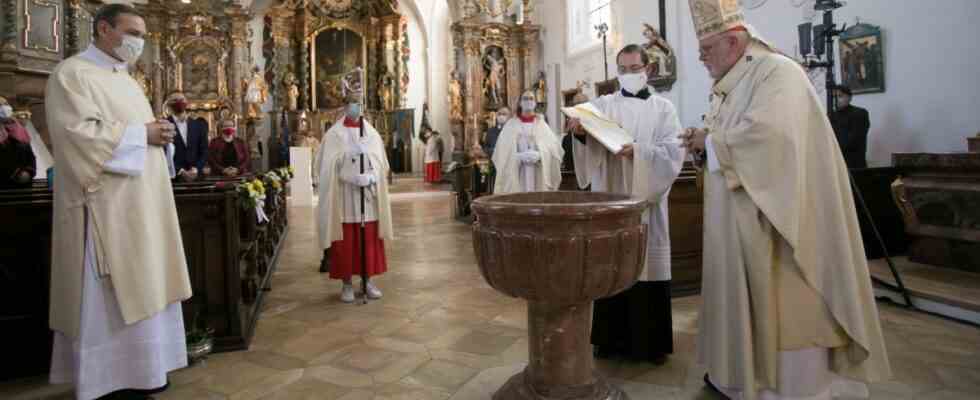“Up, up, get to work!” Ellen Ammann, founder of the Catholic German Women’s Association in Bavaria and a formative figure in Catholic girls’ and women’s social work, is said to have frequently shouted these words. In 1917, Ammann asked the then Archbishop Michael Faulhaber to be ordained a deacon. Just last weekend, today’s Archbishop Reinhard Marx spoke out in favor of women deacons, the cardinal paid tribute to the famous Catholic Ammann and promised to work for her beatification. With Ammann’s words, women from the Archdiocese of Munich and Freising now turn to Marx. Their demand is: In the Archdiocese of Munich, lay people – and therefore automatically women too – should be allowed to baptize and marry.
The women’s forum, an association of around 40 full-time and voluntary women from the Archdiocese of Munich and Freising, wants to publish a corresponding call, which the SZ has received, this Saturday. That is when Marx celebrates “50 years of pastoral consultants” with a service in the St. Ursula church in Schwabing. This job profile for full-time laypeople has existed in the archdiocese for so long, but their area of responsibility “seems to have fallen out of time,” says Hiltrud Beauty, chairwoman of the Munich Catholic Council and one of the spokespersons for the women’s forum. “Instead of finally reacting to necessities such as the shortage of priests with innovative initial approaches to empowerment such as commissioning baptisms and marriage assistance, as in the diocese of Essen, we in Munich are confronted with a strange paralysis in terms of the implementation of visions,” says Schöne.
The Bishop of Essen, Franz-Josef Overbeck, caused a stir in the spring when he commissioned laypeople in his diocese to donate baptisms. Marx’s brother referred to the shortage of priests and used a loophole in canon law, according to which any suitable person can be commissioned by the bishop to donate baptism if there are no proper baptizers such as priests or deacons. As soon as lay people are involved, the offices concerned are also open to women – in Essen, 17 female pastoral officers and one pastoral officer are now officially allowed to donate baptism.
Archbishop Marx could do the same “without further ado and without having to coordinate with other diocesan bishops” Overbeck, demand the women’s forum spokeswoman Hiltrud Beauty and Sister Susanne Schneider, representative of the nuns for human dignity. “As something expressly provided for by canon law, this cannot pose a theological problem,” the appeal continues.
The Munich women even go one step further: they want women to be allowed to do weddings. From a theological point of view, this is not so far-fetched: in the Catholic understanding, marriage is seen as a sacrament that the spouses donate to one another. The presence of an ordained man is not absolutely necessary, a church official with the necessary authorization to marry is sufficient, the Munich women argue. Catholic canon law also opens up this possibility. According to Can. 1112 C.I.C the diocesan bishop – where there are no priests and deacons – can delegate the so-called “marriage assistance”. The women demand that Marx should work for a corresponding recommendation from the German Bishops’ Conference and then seek permission from the Holy See.
The Catholic Church in Germany has been wrestling with these questions for years: How can equal rights for women be achieved? How many tasks does the priest have? Does he have to do everything alone or can responsibility be shared in a sensible way? In 2020, a paper by the Congregation for the Clergy in Rome caused great outrage, the tenor at the time was: Only a priest can lead a parish, nobody else. But in this paper, of all things, the Congregation for the Clergy already mentions the possibility of delegating baptism and marriage to lay people – albeit primarily with the aim of relieving priests. Nevertheless, these possibilities in canon law should not remain unexploited, write the members of the women’s forum. “It’s not just about relieving the burden on priests and deacons, but also about questions of justice towards us women.”

